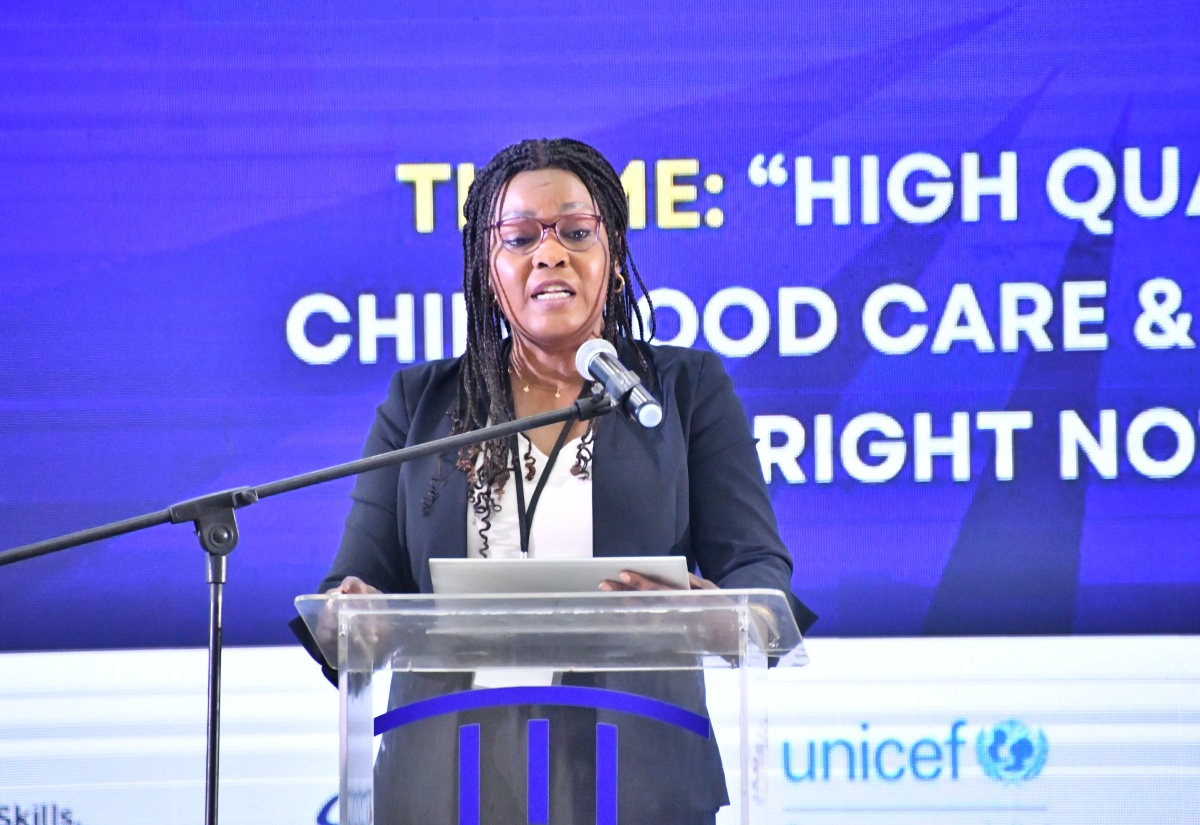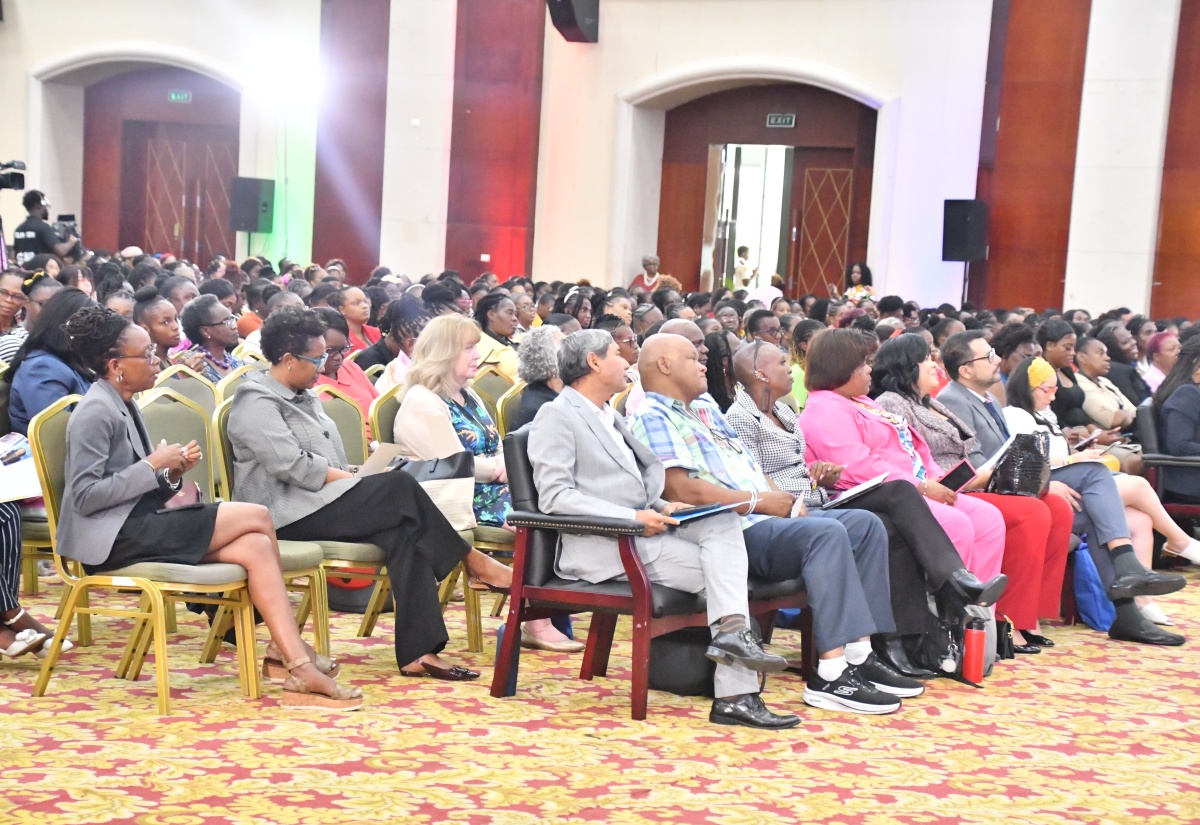Jamaica Commended for Enrolment in Early-Childhood Institutions
By: , May 21, 2025The Full Story
Jamaica has been commended for having more than 95 per cent of children, aged four to five, enrolled in early-childhood institutions across the island.
This comes from Education Programme Specialist, the Education Policy Section at the United Nations Educational, Scientific and Cultural Organization (UNESCO), Rokhaya Fall Diawara.
Ms. Diawara was giving the keynote address at the opening of the sixth annual Early Childhood Commission (ECC) Professional Development Institute (PDI), held at the Montego Bay Convention Centre in St. James, on Monday (May 19).
“What we know at UNESCO that here in Jamaica, progress has been notable. More than 95 per cent of children aged four to five are enrolled in early-childhood institutions. The Early Childhood Commission has developed a comprehensive framework for national standards across key areas, from safety and nutrition to learning outcomes,” she said.
Ms. Diawara noted, however, that challenges persist in the island’s early childhood care and education (ECCE) sector, as most institutions remain private, which raises concerns about equity, consistency and public responsibility.
She further added that contrary to popular belief, the ECCE does not begin at age three, it begins at birth.
“If we are serious about equity and lifelong learning and lifelong impact, we must focus also on the first 1,000 days, from conception to age three, a biological, emotional, and socially foundational period,” Ms. Diawara said.
“We know at this period most of the things are happening there and parents need more and more support to face the challenges during this age, and it starts even before the conception,” the UNESCO representative said.
Ms. Diawara also encouraged stakeholders to treat ECCE as more than babysitting, as it is a critical stage in a child’s educational journey.
“Too many still see ECCE as babysitting, a private household concern, or a warm-up for real education, rather than as education. There is a nuance in that. As a development trajectory, we must flip this narrative. We must do that because ECCE is not the preface; it is the first chapter of the lifelong learning journey. It sets the foundational learning pathway, and this is important,” she said.
“When it is high quality, inclusive [and] equitable it (ECCE) becomes more than a developmental service; it becomes a societal transformation strategy,” Ms. Diawara emphasised.
She also pointed out that globally, strides have been made in ECCE; however, more can be done.
“UNESCO’s 2020-30 Global Education Monitoring Report informs that early-childhood care and education enrolment is higher in high-income countries, exceeding 95 per cent, while it is often below 30 per cent in low-income countries. That’s a 65-point equity gap before a child enters formal schooling,” she noted.
The week-long PDI brings together local, regional and international exchange of research ideas and experiences that shape early-childhood development.
The event is being held under the theme, ‘High Quality Early Childhood Care and Education: A Child’s Right, Not a Service’, and concludes on Friday (May 23).


